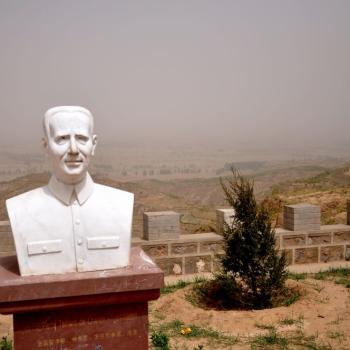
Che, a five hour film by Steven Soderbergh, is a challenge to review. On the one hand, it is a work of narrative art wrought by a master. On the other, it makes you feel Che’s existence as a guerrilla rather than give the audience enough information about why he is a guerrilla, to be engaging. This is not a mass audience movie, but a film to be savored – or not.
Benicio Del Toro is excellent as the Argentinian medical doctor-turned Marxist revolutionary. I found it helpful to have seen Motorcycle Diaries in 2004 because it showed the influences that led Ernesto “Che” Guevara (1928-1967) to fight for human liberation from government oppression. Though he spent time in the Congo, this time in his life is not covered in Soderbergh’s film – perhaps because he did not leave writings about this period.
Che was released as a single film for the requesite week in 2008 to be considered for an Academy Award; Che is now divided into Parts I and II.
Part I is based on “Reminiscences of the Cuban Revolutionary War” by Che and Part II is based on Che’s “Bolivian Diary”. The films reflect the sparcity of a journal kept on the run. In both films there is continual comings and goings in the jungle or bush and introductions of soldiers and peasants in an endless line; impossible to keep up with all of them.
When information is communicated in the film, it is as though Che is teaching us, patiently, mostly gently and always in ernest, about class struggle and often cruel and violent oppression by governments that keep the poor… poor. It sounds as if the dialogue comes from the journal. He doesn’t mind if people do not accept the revolution; he will persevere. He does not come off as a ruthless revolutionary that history says he was, yet he makes his belief that violence is the only way to overthrown oppression, very clear. He has no trust in talk or the vote; from his experience, these means failed to obtain healthcare, food, a market for goods, and education, for the people.
The problem was, when he got to Bolivia, after helping Castro with the revolution in Cuba and serving in key government posts (and fighting for that vague time in the Congo) , there was little if any revolutionary infra-structure waiting for him. Rather than build it up, he seems just to have moved from place to place with his ragtag followers with little food, or support. Some of the guerillas were veterans of the Cuban revolution and some came from other countries. At one point he tells one of the men he will write to Bertrand Russell and Sarte for financial aid. Che had a wife and five children in Cuba but we never meet them and barely see them except through photos and one small moment in Part II.
Soderbergh has taken us on a revolutionary trail with Che. It is unappealing, difficult, and as Che would say to his followers, “You have to believe you are already dead to go continue.” He used an assumed name in Bolivia and the government/army wasn’t even sure he was behind the occasional attacks and skirmishes. When Che was captured by Bolivian soldiers (that the CIA had been advising), a guard asked him if he believed in God. He replied, “I believe in humanity.”
As I was leaving the theater I asked a young woman what she thought of the films. She shrugged and said, “It was like a long documentary.” I replied, “I don’t think it had enough information about the man himself to have been a documentary.” She said, “That’s what books are for.”
Che was an educated, complex man who felt great empathy for the poor. The Latin American revolutions that began in the 1960’s are very complex, mixing politics, corruption, Marxism, the Church and violence into an volatile mixture.
The most lucid stories (to me) about these times and the confrontation between violence and pacifism as a means to resolve conflicts between land reform and government oppression, can be found in Romero (1989; with Raul Julia as the martyred Archbishop Oscar Romero; violence to defend vis-a-vis violence to attack) and Innocent Voices (2004; Voces Inocentes; directed by Luis Mandoki is the story of child soldiers and a young boy’s eventual escape from El Salvador at almost the same time Romero was killed.) It may be difficult to find a copy of Romero, but it would be worth your while. Innocent Voices is available on DVD.












